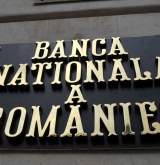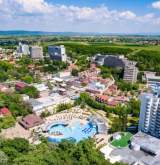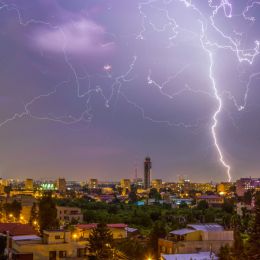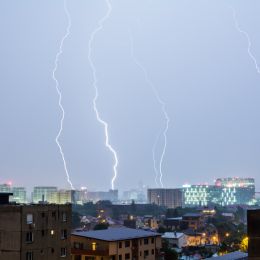“After a 7.1% economic growth in 2008, a first sign of overheating, we forecast 7.1% economic contraction in 2009. We also expect to see a weak activity in agriculture this year”, ING Bank said.
Furthermore ING’s analysts expect the economic growth to turn positive as late as in first quarter 2010.
“Apart from the global recession, there are other factors responsible for the contraction of the Romanian economy. The April statistics made public this week were generally lower than expected: construction sector dropped 13.7%, industrial production by nearly 10% and retail industry by 10.3%. Except for the industry, the other sectors deteriorated compared to first quarter, heralding a further decline in the second quarter 2009”, ING said.
On the other hand, ING’s analysts outline the ongoing weakening of the lending activity, while outlook remains negative.
“The discouraging data on GDP and somber forecasts both for Romania and for the region provide support to our view of a roughly -7.1% economic contraction”.
Convergence program: Romania’s GDP could shrink by 4.4%
Convergence program: Romania’s GDP could shrink by 4.4%
Romania’s gross domestic product could shrink by more than 4% this year, on weak agricultural activity in the event of flood or drought, and higher-than-expected damages caused by the global crisis, coupled with sharp rise in fuel prices, Convergence Program shows.
The government stresses that the premises for the current long-term macroeconomic framework included in the Convergence Program took into consideration the projections of various institutions that see an economic contraction worldwide and EU-wide in 2009, stronger than estimated earlier this year, and a gradual revival in 2010.
“There are still uncertainties and major risks ahead for the remainder of the year, considering that the global economy is still facing a severe crisis that impacts differently every nation, including Romania”, states the Convergence Program 2008/11, published on Ministry of Finance’s webpage.
“A negative response by world economy’s real sector to financial sector’s woes could impact Romanian economy by reducing export markets for Romanian products”, convergence program shows.
“If these challenges are coupled with other risks related to international prices for fuel, natural gas or food, Romanian economy could shrink by a wider margin than anticipated. This evolution is, of course, the immediate trigger of the impact over internal offer and demand, following employment difficulties in the labor market and wage cuts. The risk scenario includes the positive effect of anti-crisis measures, assumed by the Government to combat crisis, of 2 basis points”, 2008-11 convergence program shows.
With a narrow internal offer, output gaps are likely to widen, trade gap to increase, and CA deficit to keep weight in the GDP in the last year’s range. Reduction of activity will reflect in the decline of economic competitiveness and in booming unemployment rates.
The Government projects a reduction of Romania’s Gross Domestic Product by 4%in 2009, followed by a slight recovery of the economy in 2010, when the economic growth will likely turn positive, (0.1%), and in 2011 to increase by 2.4%.
In first quarter 2009, Romania’s economy shrank 6.2% YoY, according to temporary data announced by National Institute of Statistics.
Raiffeisen revises GDP projection
Raiffeisen Bank analysts expect a decline of Romania’s GDP in second and third quarter from earlier quarters, and economic growth to turn positive no sooner than Q4.
The average unemployment rate will stay in the range of 5.6% in 2009 and will increase to 6.5%in 2010, Raiffeisen analysts say.
Raiffeisen Bank has revised downward its CA deficit projection, to 6.8% of GDP (8.4 billion euros) this year, and to 6% of GDP (8.7 billion euros) next year, from prior estimates of 9% of GDP and 8% of GDP respectively.
Trade gap is also expected to narrow to 7.5% of GDP (9.2 billion euros), and to fall back in the range of 6% of GDP (9.6 billion euros) in 2010, reads the report.
“A fast-track adjustment of CA deficit from the trade gap reflects the net increase of transfers from European Commission and reduced contribution from revenues (largely due to the reinvested profit of foreign companies, which dropped over the past two quarters)”.
Alpha Bank: 3.1% GDP contraction in 2009
Alpha Bank has revised downward its GDP projection for 2009, to 3.1% from prior estimates of 0.5%, according to quarterly financial report of the bank.
For 2010, Alpha Bank expects the economy to come back in the positive camp, of 0.2%.
According to Alpha Bank, Bulgaria will be the only country in the region to deal with a sharper contraction of the economy in 2009, of 3.8% while for 2010, the nation’s GDP will grow by 0.9%.
IMF: Romania’s economic contraction still has further to go
Romanian economy did not sink to what may be the recession’s lowest point in the first quarter of the year and the gross domestic product (GDP) will further contract but at a slower pace and shift back on green at the end of 2009, said the head of the IMF’s mission chief for Romania, Jeffrey Franks.
“Gross domestic product will continue its decline in second and third quarter, but not at the same alert pace as in first three months. I am referring to a q/q comparison and not YoY”, said the head of IMF’s mission.
Recession in Romania is most probably U-shaped, declared Franks, who sees a turnaround by end-2009 and early 2010.
“Our delegation arrives once in three months and we will revise our forecasts on a regular basis,” said Franks.
As for the likelihood of a drought in 2009 and its effects on agriculture, Franks thinks the social impact is more important than the impact on the GDP.
Merrill Lynch’s revision
Romanian economy will “fall sharply” in the remainder of 2009 and throughout 2010, by 6.4% and 2.5% respectively, following the fiscal adjustment measures agreed with IMF, said Merrill Lynch.
According to prior estimates of the US-based bank, Romania’s gross domestic product would fall by 3.4% in 2009 and 3.2% in 2010, after a 7.1 economic growth in 2008.
The inflation will top NBR’s target range of 3.5% with a tolerance band of +/-1bp- following mounting inflationary pressures and leu’s devaluation. Bank of America Securities (BAS) and Merril Lynch see the inflation in Romania at 5.2% in 2009 and 4% in 2010.
“Deepening fiscal and external deficits remain the main challenges that Romania is facing, but the implementation of the fiscal program and economic recession should lower Romania’s tax gap in 2009 to 4.6% of GDP from 7.5% in prior estimates, and we expect the CA deficit to narrow to 8% of GDP in 2009 and to 6.5% of GDP in 2010.”
Isarescu’s expectations
The governor of the National Bank of Romania, Mugur Isarescu, said recently that Romania’s economic growth would stay positive, despite the 6.4% contraction of the gross domestic product in first quarter.
“I remain confident that the economic growth will remain positive, not at the same pace as in 2008, but rather at a normal pace”, said Isarescu.
The lowest point of recession in Romania, which was a V-shaped bottom, was reached in first quarter, as the governor of National Bank of Romania said in a prior statement.
Isarescu added that the technical recession is not defined as two down quarters of GDP compared to prior quarters but two down quarters in GDP compared to prior-year period.
The BNR governor said he expected the economy to perform better in the second quarter this year than Q2 2008.
Lazea: Romania’s economic growth can turn positive in 2010
Romania has all the chances to have an economic growth in 2010, after the 6.4% Q1 contraction was caused also by a basic unfavorable effect, said Valentin Lazea, senior economist at National Bank of Romania.
“Statistically, Romania has all the chances to perform better than in 2009, and the economic growth to climb into the positive camp. It is a statistical argument, apart from the structural one”, said Lazea at a seminar.
First quarter economic slowdown is an aftereffect of an eyebrow-raising economic growth in first quarter 2008, he continued.
EBRD sees Romanian economy contracting to -4% in 2009
European Bank for Reconstruction and Development said Romanian economy would climb to 0.4% in 2010, more than European Commission and National Prognosis Commission anticipate.
EBRD expects a 4% contraction of Romanian economy for the remainder of 2009, revised from 1% growth estimate it made in January. EBRD’s forecasts line up to European Commission and NPC’s projections, while IMF sees 4.1% contraction.
Citigroup: -6% in 2009
Citi revised its 2009 GDP growth forecast to -6.0% from around -4.0%, In view of the sharper-than-expected contraction in the first quarter.
Romania’s economy shrank 6.4% YoY in first quarter, according to the data made public by National Institute of Statistics, a contraction well above expectations.
Citi’s Ilker Domec says the sharper-than-expected contraction of GDP would narrow the current account gap, hurt the fiscal performance while NBR may have stronger incentives to cut rates, which would dent the currency exchange rates.
“At first glance, one could argue that while the first implication is likely to be currency positive, the latter two would be currency negative. We believe that unless global risk appetite worsens and the NBR cuts excessively, the above-noted developments—in view of the EUR20 billion IMFEU package—are likely to be leu neutral. In this regard, we also argue that the NBR would refrain from easing aggressively if it becomes apparent that rate cuts are hurting the leu”, Citi says.
Citeste si:
Calculator Salariu: Află câți bani primești în mână în funcție de salariul brut »
Te-ar putea interesa și:


















































































![HR [PLAY] Tech Workout - 11...](https://www.wall-street.ro/image_thumbs/thumbs/973/973fe0a3888d417feff63de42e814180-260x260-00-65.jpg?v=1714041632)









